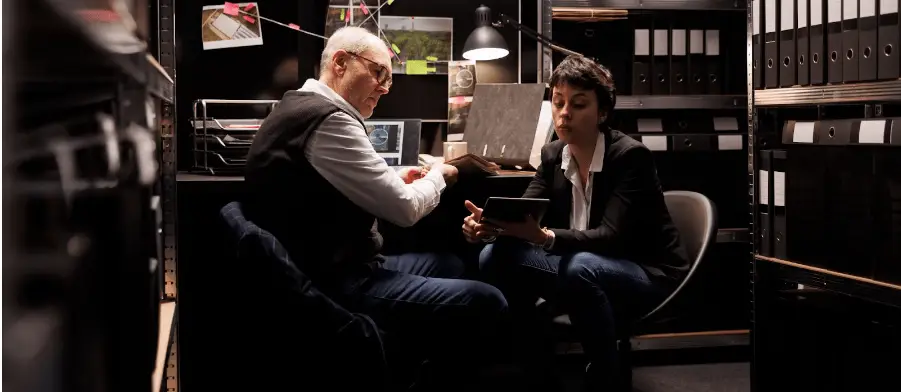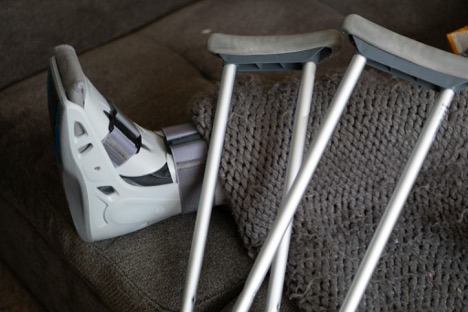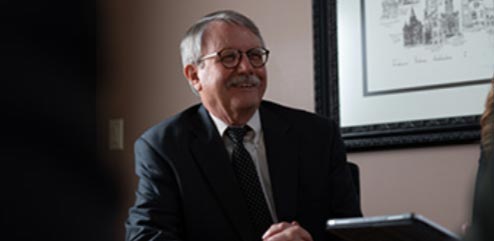Indianapolis Paralysis Lawyer
Helping people is our priority



Since 1993

At Christie Farrell Lee & Bell, our Indianapolis paralysis lawyers bring decades of experience representing catastrophic injury survivors across Indiana. We support clients from day one, coordinating with spinal cord specialists, life care planners, and treating physicians to build precise recovery plans. Our goal is to secure compensation that addresses both current needs and future obligations.
We invite you to schedule your free consultation with our experienced Indianapolis paralysis attorney today to explore your compensation options.
How CFLB Advocates for Paralysis Victims in Indianapolis: Fighting for the Compensation You Deserve
At Christie Farrell Lee & Bell, we’ve helped clients in Indianapolis navigate some of the most severe personal injury cases—cases that involve not just the immediate consequences of an accident but decades of future care needs, lost earnings, and life adjustments.
We invite you to review our case results to see how we’ve helped catastrophic injury clients recover meaningful compensation after life-altering events. If you or a loved one is living with paralysis after an accident in Indianapolis, we offer a free consultation to discuss your options and begin building a legal strategy focused on your health, financial security, and future independence.
Speak with a personal injury lawyer today. Call: 317-488-5500
Types of Paralysis and the Ongoing Medical Demands
According to Congress.gov, national estimates suggest that 10,000 to 12,000 new spinal cord injuries occur annually in the U.S., with motor vehicle accidents, falls, and workplace incidents as leading causes. Unfortunately, many of these accidents end in paralysis. If your injury was caused by any of these, you may be eligible for a claim—even if you were partially at fault.
At CFLB, we work with medical experts to clearly define the type and level of spinal cord damage a client has sustained. This distinction is not only medically significant but also directly affects the amount of compensation needed to support long-term care.
Types of paralysis injuries we see in Indianapolis cases include:
- Paraplegia, where the lower limbs and lower body lose mobility and sensation
- Quadriplegia (or Tetraplegia), involving paralysis from the neck down, often requiring lifelong use of ventilators or personal care attendants
- Partial paralysis, where individuals may retain limited movement or sensation, often accompanied by chronic pain or secondary complications
- Spinal cord trauma that does not result in total paralysis but still demands adaptive equipment, surgeries, and ongoing therapy
At Christie Farrell Lee & Bell, we don’t settle for surface-level numbers. We build cases backed by detailed life care plans, expert economic analysis, and testimony from treating physicians to prove not only what you’ve lost, but what it will take to move forward.
Complete a Free Case Evaluation form now
Seeking Compensation for a Paralysis Injury in Indianapolis
Paralysis claims involve more than just medical bills. These cases demand a full accounting of how your life has changed. When we represent someone who has suffered paralysis in an accident, we work to recover compensation for:
- Medical expenses, both past and future, including surgeries, hospital stays, and ongoing therapy
- Lost income, including wages already lost and projected loss of future earning ability
- Home modifications and assistive technology, such as wheelchair ramps, stair lifts, and vehicle adaptations
- Long-term care costs, including in-home nursing or assisted living support
- Pain and suffering, which includes physical pain, emotional distress, and the trauma of losing independence
- Loss of enjoyment of life, including diminished ability to participate in hobbies, travel, or family life
- Loss of consortium, affecting intimate relationships and spousal support
During a free consultation, we’ll evaluate your potential damages, identify liable parties, and explain how we can pursue the maximum compensation under Indiana law.
Click to contact us today
How Indiana Law Shapes Your Legal Rights After a Paralysis Injury
At CFLB, we not only guide clients through the legal process, but we also ensure they don’t miss critical deadlines or get pushed into unfair settlements by insurance companies.
Our attorneys often see cases where victims are unaware that certain limits apply, or where more than one party may be held accountable. We provide local representation that includes thorough investigation, handling complex negotiations, and preparing every case as if it may go to trial.
Statute of Limitations for Indiana Paralysis Claims
Under Indiana Code § 34-11-2-4, you typically have two years from the date of injury to file a lawsuit. Missing this deadline can result in your case being dismissed, no matter how severe the injury. Some exceptions may apply—for example, if the injury wasn’t immediately discoverable, or if the victim was legally incapacitated—but these are limited. That’s why we advise contacting an attorney immediately after diagnosis or confirmation of paralysis.
Indiana’s Comparative Fault System
Indiana follows a modified comparative fault rule under Indiana Code § 34-51-2. If you’re found less than 51% responsible for the accident, you can still recover compensation, but your total award will be reduced by your percentage of fault. For example, if you’re awarded $1 million but were found 10% at fault, your compensation would be reduced to $900,000. We investigate thoroughly to dispute any inflated fault percentages assigned to you.
Contact an Indianapolis Paralysis Lawyer Today
If you or a loved one is living with paralysis after an accident, we invite you to speak with a lawyer who knows how to help. At Christie Farrell Lee & Bell, we offer free consultations and work on a contingency basis—so you pay nothing unless we win your case. Our goal is to secure the compensation you deserve and hold the right parties accountable, whether it’s a negligent driver, a property owner, or a healthcare provider.
We encourage you to contact us today and learn how we can support your next steps. Our team is here to answer your questions, investigate your claim, and fight for the long-term security you need after a catastrophic injury.
FAQs About Paralysis Lawsuits in Indianapolis
How long do I have to file a paralysis claim in Indianapolis?
You generally have two years from the date of injury to file a lawsuit under Indiana Code § 34-11-2-4. If the injury wasn’t immediately obvious, exceptions may apply. It’s best to contact an attorney as soon as possible.
Can I file a claim if I was partially responsible for the accident?
Yes. Indiana’s comparative fault rule allows recovery if you were less than 51% at fault. Your compensation is reduced by your percentage of responsibility.
Do I need to have total paralysis to file a claim?
No. Partial paralysis, temporary mobility loss, or any spinal trauma that impacts your daily life may be grounds for compensation.
What if my paralysis was caused by a surgery in an Indianapolis hospital?
You may have a medical malpractice case. We’ll review your medical records, consult with independent physicians, and help determine if a breach of care occurred.
What’s the average settlement for paralysis cases in Indianapolis?
There is no fixed amount. Compensation depends on medical costs, lost income, level of paralysis, and future care needs. We build custom life-care plans and work with economic experts to pursue full recovery.

Get a FREE Case Review
Schedule Your Free Consultation










